Case 6
- The Great War
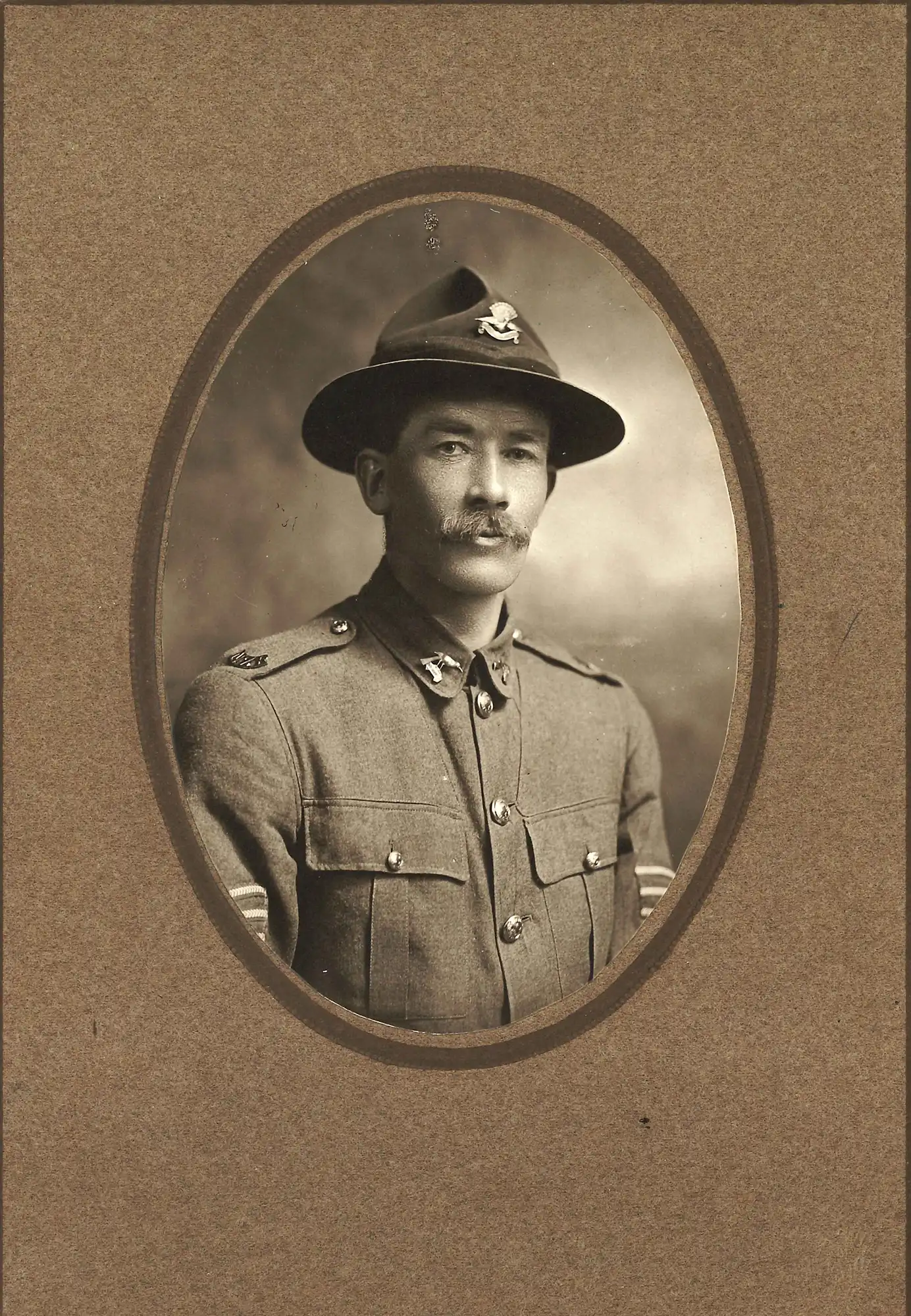
Portrait of A.H. Reed, Featherston Camp, 1917.
A.H. Reed was in the New Zealand Expeditionary Force from 22 September 1916 to 16 October 1918. He was posted to the 21st Reinforcements, the last of those manned solely by voluntary enlistment. Reed spent his time in the NZEF in Trentham and Featherston military camps where his shorthand skills gained him a position on headquarters staff.
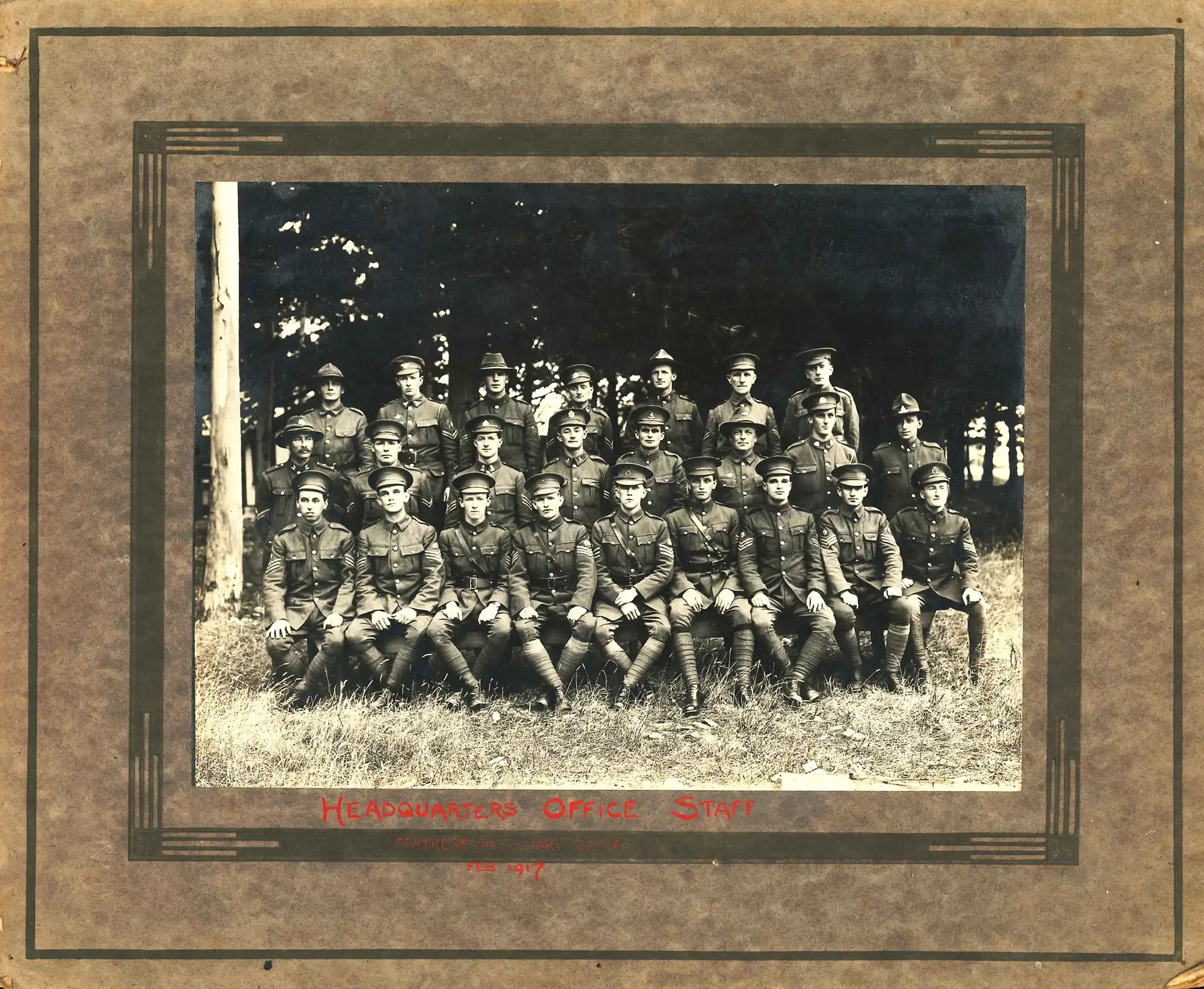
Headquarters staff at Featherston Camp, February 1917.
In this group photograph, Reed is in the middle row, far left.
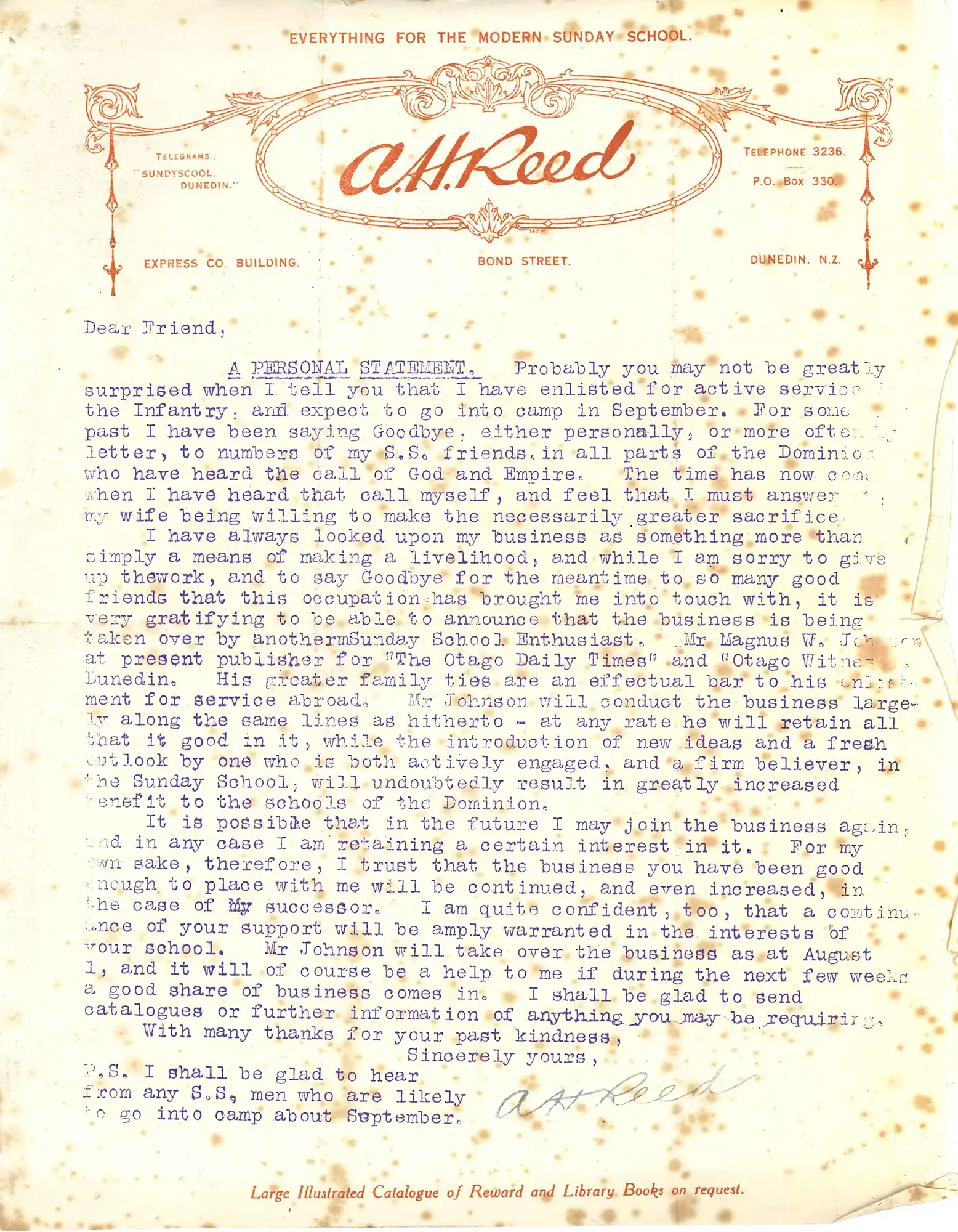
A.H. Reed’s circular letter to Sunday School Supplies Store customers announcing his intention to join the War effort. 1916.
Alfred and Isabel Reed were devout Christians but shared the sense of duty felt by the majority of New Zealanders to support the war effort. Early in the War, Reed joined the National Reserve, but as the situation in Europe became unequivocally grave, he considered enlisting for active service. Isabel agreed, and he joined the 21st Reinforcements. The business was sold to Magnus Johnson, businessman, publisher, and superintendent of Roslyn Presbyterian Sunday school.
Displayed here is Reed’s copy of the circular letter he sent to his customers explaining his decision. More than 200 replies from customers nationwide are held in the Reed Archive. Most are supportive of Reed’s decision, but some express surprise due to his age and marital status, and some comment on the horrors of war.

A.H. Reed’s circular letter to Sunday School Supplies Store customers announcing his intention to join the War effort. 1916.
Open image in new window
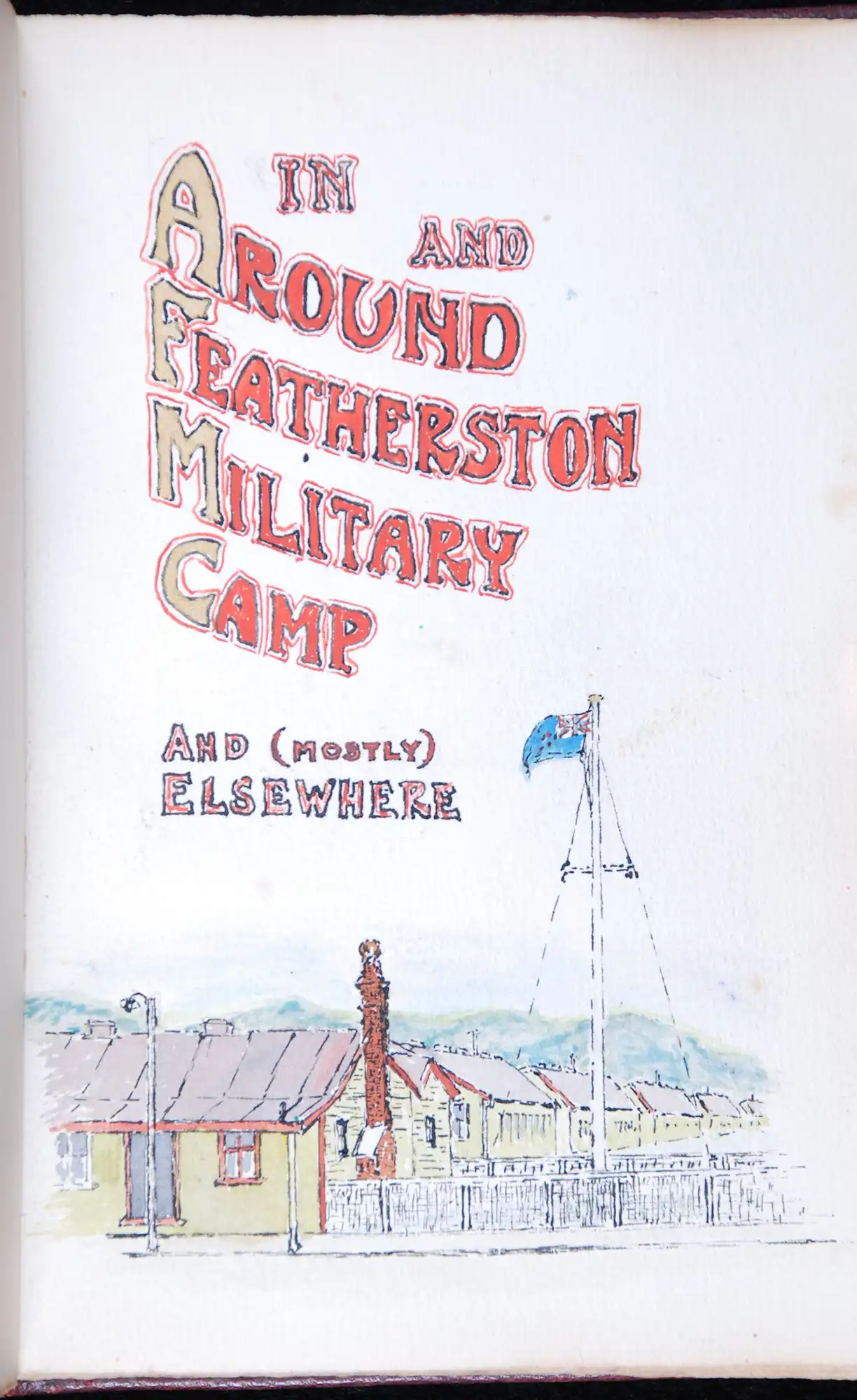
A.H. Reed. In and around Featherston Military Camp: and (mostly) elsewhere. 1917.
This 124-page hand-illuminated diary was compiled by A.H. Reed for his wife Isabel during his spare time at Featherston Camp. It contains Reed’s first substantial written account of a walking tour, as he describes the idyllic rural settings in which he wandered from Ohakune to Pipiriki during Easter leave in 1917.
The diary includes an account of the 24th Reinforcements’ ‘Long Trail over the hill’ to Trentham. In his Autobiography Reed mentions the regret he felt at not being able to accompany his 21st Reinforcements on their walk from the Camp to Trentham.
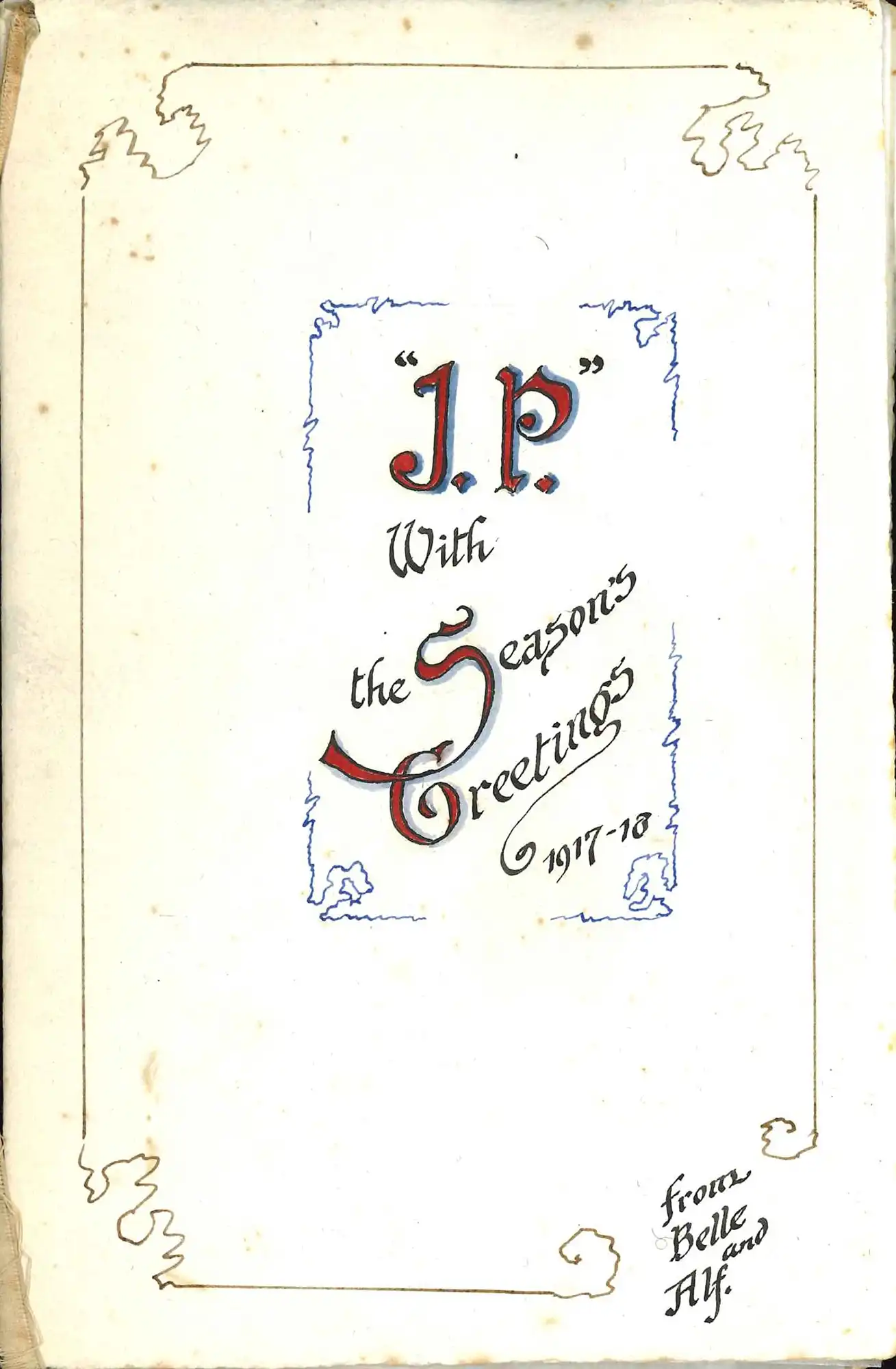
Small manuscript booklet by A.H. Reed, addressed to ‘J.P.’ for Christmas/ New Year 1917-18.
In his spare time at Featherston, Reed produced a number of small hand-lettered booklets which he gifted to friends and family. The displayed booklet is addressed to ‘J.P.’, which stands for ‘Juvenile Parent’. The recipient is Reed’s father Jamie, known for his youthful appearance, and who, like Alfred, lived well into his nineties. ‘Juvenile Parent’ is a derivation of ‘Aged Parent’ a term used by the clerk Wemmick in Dickens’ Great Expectations.
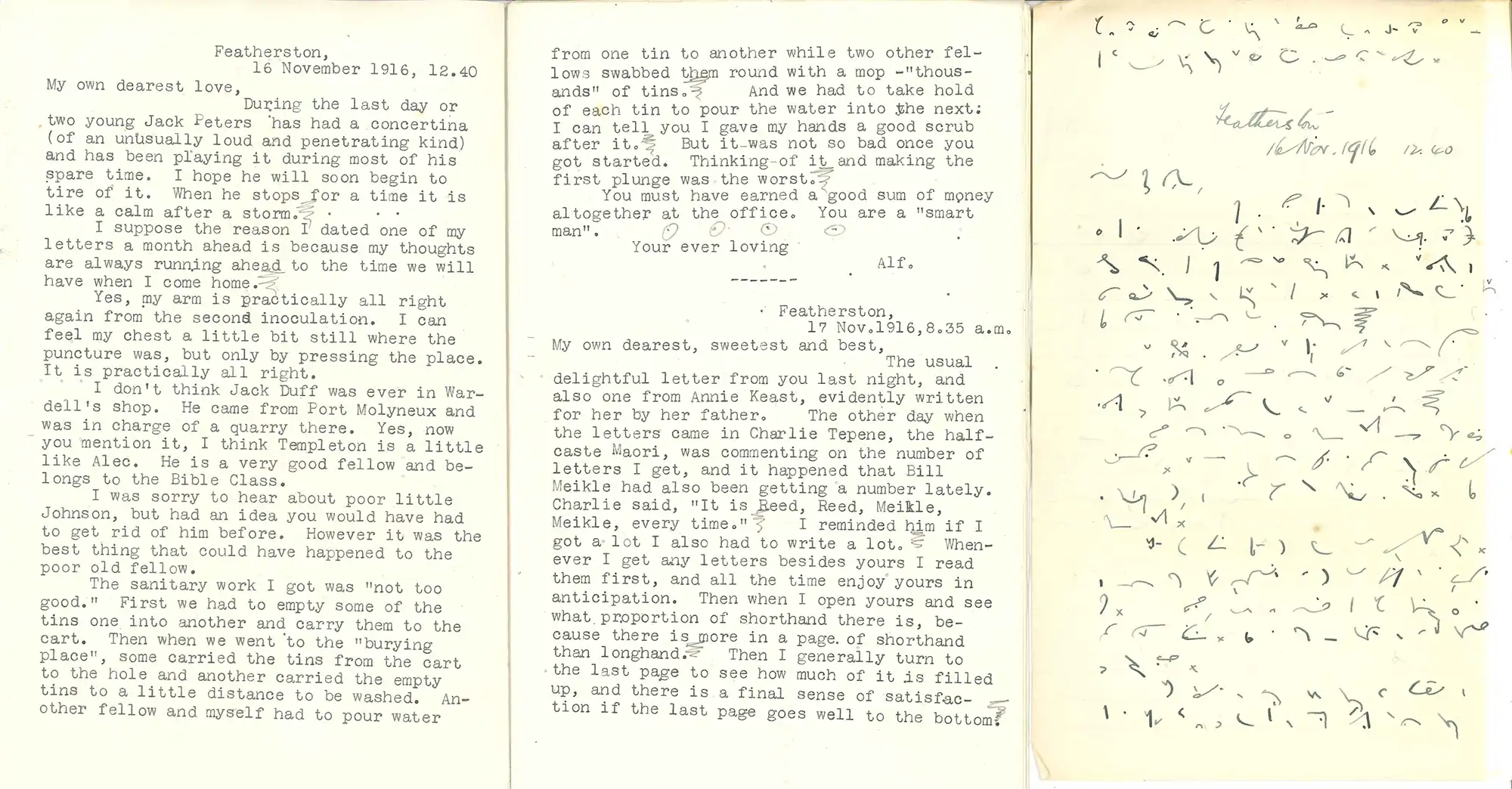
Letter in Pitman shorthand from Alfred to Isabel Reed, dated 16 November 1916; with transcript.
During his time at Featherston, Alfred engaged in daily correspondence with Isabel, who continued to work part time in the Sunday School Supplies office for Magnus Johnston. Personal letters between Alfred and Isabel were written in Pitman’s shorthand - a convenient tool for Alfred to ensure privacy while living in close quarters with his comrades.
In the displayed example (with transcription), Reed complains of a young soldier relentlessly playing a loud concertina and describes everyday matters such as unpleasant “sanitary work” at camp.

Letter in Pitman shorthand from Alfred to Isabel Reed, dated 16 November 1916; with transcript.
Open image in new window





